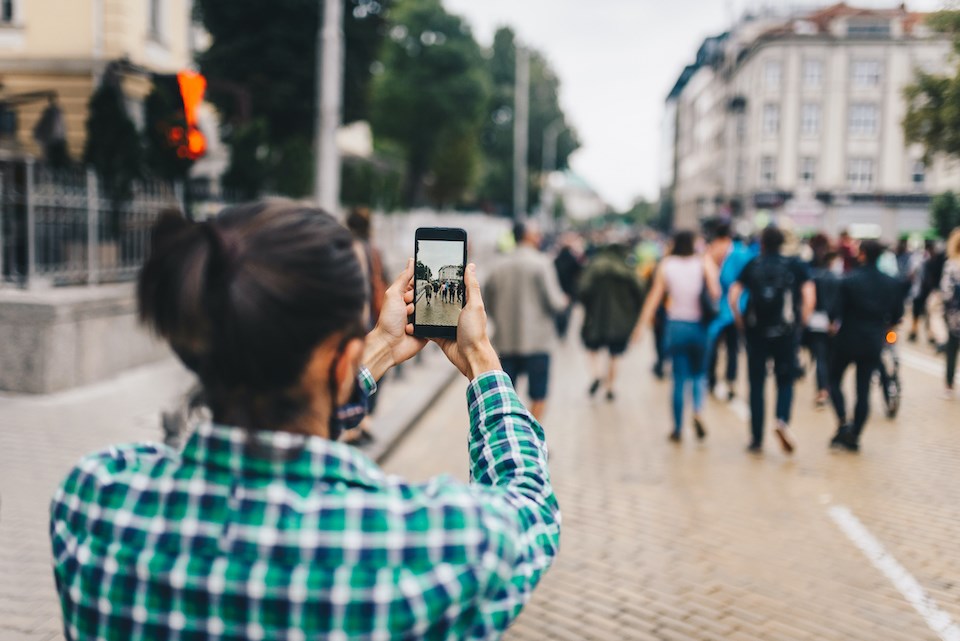People can generally film strangers in public places in Vancouver...but the law isn't exactly cut and dried.
Former Park Commissioner Sarah Blyth recently mentioned on X, formerly Twitter, that a couple were presumably without their consent, raising concern for their privacy.
The post has sparked an outcry on the social media platform, with numerous people mentioning that the pair is infringing their basic human rights. Others commented that there is no expectation of privacy in public settings and they weren't breaking any laws.
Are there any exceptions to the rule?
Â鶹´«Ã½Ó³»criminal law lawyer Kyla Lee said beaches and public spaces are generally places where it is "difficult to say you have a reasonable expectation of privacy" but an argument could be made that recording unhoused individuals violates their privacy rights.
"For example, if these people are filming for the purpose of profit or some sort of gain, that could be a violation of privacy laws under the Personal Information Protection Act (PIPA)," she said.
"The definition of personal information under the Act is broad, 'personal information' means 'information about an identifiable individual and includes employee personal information.' So arguably personal information — like where someone sleeps, uses drugs, or engages in economic activities — requires consent for disclosure."
While journalists have exceptions under PIPA, work conducted under the act would not be in a "mocking or degrading" tone toward unhoused people, Lee explained.
"PIPA also only applies to organizations, but 'organization' is defined to include a person. Only those people who are acting in a personal capacity — ie not part of a coordinated effort to post images online or for online profit or clout — are considered not organizations under the Act."
What other places are considered inappropriate to film people in Vancouver?
People can be charged with voyeurism in any place where an individual has a reasonable expectation of privacy, "and if the recording is for a sexual purpose," Lee said.
For instance, an individual recording people working out at a gym could be charged because there is a reasonable expectation of privacy in a place that requires a membership.
"The recent SCC case of R. v. Jarvis entered a conviction for voyeurism where a teacher was filming students surreptitiously in a classroom," she highlighted.



